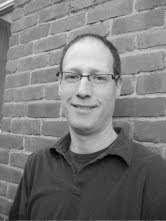
Founding Editors Pamela A. Babusci and Cathy Drinkwater Better, and Black Cat Press, are proud to announce the first
all women's tanka journal:
Moonbathing.
Moonbathing will publish two issues a year: Fall/Winter and Spring/Summer. The journal will be small in size but huge in the quality of the tanka that is accepted and published.
Premiere Issue Tanka Contest:For the Premier Issue (Fall/Winter 2009–10), the Editors are sponsoring a "moonbathing" tanka contest. Tanka poets may submit
one tanka on the subject of “moonbathing”—whatever that means to you—for consideration, in addition to their regular submissions. The winner will be featured in the premiere issue of
Moonbathing and receive a complementary copy. (Be sure to label your entry “moonbathing contest” if sending along with a regular submission.)
SUBMISSION GUIDELINES: Moonbathing will feature
only women poets. Send a maximum of five (5) tanka per submission period. Submission deadlines:
Fall/Winter Issue:
In-hand Deadline: November 1st. Fall/winter or non-seasonal themes only.
Spring/Summer Issue:
In-hand Deadline: May 1st. Spring/summer or non-seasonal themes only.
No previously published tanka or simultaneous submissions; no tanka that has been posted on-line, whether on a personal website/blog or on a tanka discussion group; and no publicly workshopped tanka will be considered or accepted.
SUBMISSION ADDRESSES:Tanka poets with last names beginning: A-M:Send your tanka IN THE BODY OF AN EMAIL to: Pamela A. Babusci:
moongate44(at)gmail(dot)com PLEASE NO ATTACHMENTS. Or
mail to: Pamela A. Babusci, 150 Milford St., Apt. 13, Rochester, NY 14615 USA.
Tanka poets with last names beginning: N-Z:Send your tanka IN THE BODY OF AN EMAIL to: Cathy Drinkwater Better:
cbetter(at)juno(dot)com PLEASE NO ATTACHMENTS. Or
mail to: Cathy Drinkwater Better, 613 Okemo Drive, Eldersburg, MD 21784 USA.
Submissions will not be returned, so keep a copy of your poem(s). If sending a submission by snail-mail, please enclose a self-addressed, stamped envelope for a reply. We cannot respond to submissions without SASEs.
Guidelines:The Editors are looking for the "crème de la crème" in contemporary English tanka being written by female poets.
Moonbathing will accept one tanka per poet per issue, and one poem will be featured per page.
We are seeking to recognize, honor, and praise the unique "female voice" and perspective in tanka. The Editors are excited about being the first women editors to offer this type of literary venue to female tanka poets, and we hope all women poets will feel honored and enthusiastic as well.
Payment:Unfortunately, at this time the Editors will not be able to provide contributors’ copies.
Due to the current economic situation—as well as our shoe-string budget—we hope that all tanka poets who have their work accepted will support
Moonbathing by purchasing a copy or a subscription. If we are to succeed, the magazine will need your support—and we will be most grateful for it.
Disclaimer:Moonbathing does not assume liability for copyright infringement or failure to acknowledge previously published tanka.
Copies/Subscriptions:
Subscriptions: $10 for one year (two issues) U.S. and Canada; $5 for one copy (includes postage). Overseas: $14 U.S. dollars. Make checks—or send cash or international money orders—payable to “Cathy Walker” to: Moonbathing, Cathy Drinkwater Better [Walker], 613 Okemo Drive, Eldersburg, MD 21784 USA.
The Editors of
Moonbathing are looking forward to receiving your best tanka. If you have any questions, feel free to e-mail either Pamela A. Babusci
moongate44(at)gmail(dot)com or Cathy Drinkwater Better
cbetter(at)juno(dot)comRespectfully submitted,
Pamela A. Babusci,
Cathy Drinkwater Better
Co-editors/Co-founders,
Moonbathing

















